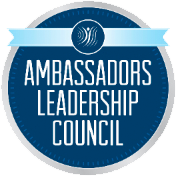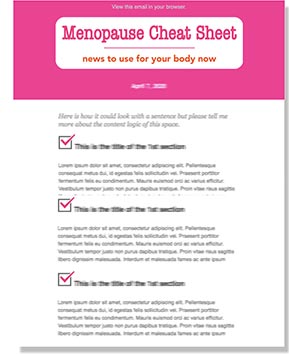“AARP is making an investment in hope.” — AARP CEO Jo Ann Jenkins

But it isn’t only those who succumb to Alzheimer’s and other forms of dementia we need to worry about, it’s also the millions of adults who are responsible for providing or arranging care for a person with Alzheimer’s. It’s been reported that over 14 million adults care for others with Alzheimer’s without getting paid. The typical caregiver is a 49-year old woman, with children, usually working at least 20 hours outside the home. When you tack on the hours spent caring for someone with Alzheimer’s, it creates a situation where the caregiver is stressed, and probably not taking care of her own health needs. The estimated annual cost for Alzheimer’s patients to be cared for in assisted living or a nursing home is well over $87,000, which is cost prohibitive for many American families.
There have been recent developments in Alzheimer’s research–harnessing immunology, studying inflammation, understand the impact of estrogen, and of course, carefully examining the findings of cancer researchers to see where it can be applied to Alzheimer’s research. But, most people believe it just isn’t moving us any closer to finding a cure, a more effective way to treat it, or how to prevent it.
Alzheimer’s has had a profound and lasting impact on my own family. My maternal grandmother died from Alzheimer’s at age 81. Toward the end, she no longer recognized us, and we witnessed her slow, sad decline with grief and fear. My mother now is showing signs of dementia, causing my sister and me to be concerned about our own brain health. Our story is far from unique.
Did You Know?
Not all memory loss is caused by dementia. Watch this Today Show segment where I talked about some of the most common things that can cause dementia-like symptoms.
The last Alzheimer’s drug was approved more than a decade and a half ago and only brings temporary relief of disease symptoms. Since then, over 400 clinical trials have failed. AARP recently surveyed physicians around the country and sadly, almost half of them say that dementia is a hopeless diagnosis.
But, maybe we shouldn’t give up hope just yet. I attended a press briefing a few days ago, during which it was announced that AARP is investing $60 million in the Dementia Discovery Fund (DDF) along with Quest Diagnostics, and UnitedHealth Group. Together, they will focus on discovering and developing effective new drugs for treating dementia.
After the event, I had the opportunity to talk one-on-one with Jo Ann Jenkins, the CEO of AARP, and she told me that “by investing in DDF, AARP and its partners are committed to discovering innovative solutions that could reverse this trend and put a stop to this critical health crisis.” In addition, AARP remains equally committed to helping caregivers cope by encouraging them to take care of themselves and by giving caregivers the tools and support they need.
Jo Ann ended our chat on a very upbeat note by stating that “AARP is making an investment in hope.” I’ll be keeping tabs on the progress made by DDF and will report on future developments as they happen.
For best tips on how to live a better, longer, happier life, including science-backed ways to keep your brain sharp, check out my newest book — “Love Your Age” (National Geographic 2018).
It’s available wherever books are sold but if you click here you can get it right away!



 Not all memory loss is caused by dementia. Watch this Today Show segment where I talked about some of the most common things that can cause dementia-like symptoms.
Not all memory loss is caused by dementia. Watch this Today Show segment where I talked about some of the most common things that can cause dementia-like symptoms.





























































